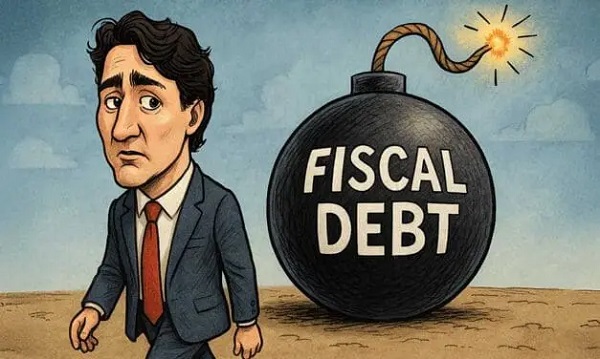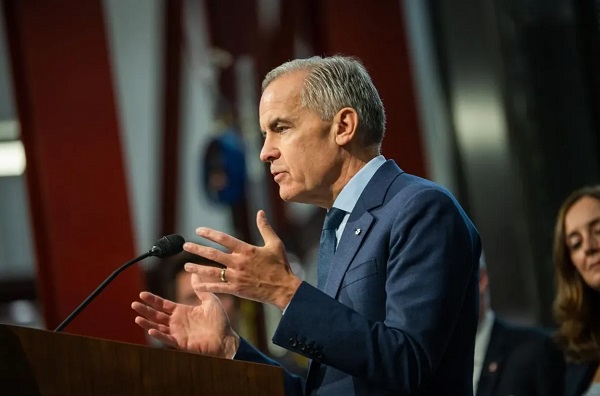Opinion
Judge Andrew P. Napolitano: Can Congress Ban TikTok?

From Heartland Daily News
“Congress shall make no law … abridging the freedom of speech.”
–First Amendment to the U.S. Constitution
When James Madison set about to draft the Bill of Rights — the first 10 amendments to the U.S. Constitution — he was articulating what lawyers and philosophers and judges call “negative rights.” A positive right grants a privilege, like a driver’s license. A negative right restrains the government from interfering with a preexisting right. In order to emphasize his view that the freedom of speech preexisted the government, Madison insisted that the word “the” precede “freedom of speech” in the First Amendment.
If the freedom of speech preceded the government, where did it come from?
Speech is a natural right; it comes from our humanity. The framers of the Constitution and the ratifiers of the Bill of Rights understood and recognized this. Congress doesn’t grant the freedom of speech; rather it is prohibited absolutely from interfering with it. In the years following the ratification of the 14th Amendment, the courts began applying the restrictions in the First Amendment to the states and their municipalities and subdivisions.
Today, the First Amendment bars all government — federal, state and local — and all branches of government — legislative, executive and judicial — from interfering with the freedom of speech.
You’d never know this listening to Congress today. The same Congress that can’t balance a budget or count the number of foreign military bases the feds own, that thinks it can right any wrong and tax any event, that has borrowed over $34 trillion and not paid back any of it; the same Congress now wants to give the President of the United States — whomever might occupy that office — the lawful power to suppress websites he thinks are spying on their users or permitting foreign governments to influence what folks see on the sites. All this is an effort to ban the popular website for young folks called TikTok and force its owners to sell its assets.
Here is the backstory.
Throughout American history, we have suffered from mass fears. In the 1790s, it was fear of the French and of Native Americans. In the 1860s, it was fear of African Americans and fear of Confederates. In the 1900s, it was fear of anarchists, Nazis and Communists. In the first quarter of the present century, the government has whipped up fear of terrorists, Russians, Saddam Hussein, Vladimir Putin and now the Chinese.
In his dystopian novel, “1984,” George Orwell analyzed the totalitarian mind and recognized the need that totalitarians have for fear and hatred. They know that when folks are afraid, they will bargain away the reality of liberty for the illusion of safety. Without fear and hatred, totalitarians have fewer tools for control of the population.
What is the government’s problem with TikTok? The feds want to use fear and hatred of the Chinese government in order to regulate the sources of data and information that Americans can consult. They have projected upon the government of China the very same unlawful and unconstitutional assaults on natural rights that the feds themselves perpetrate upon us.
Thus, in order to gain control over the American public, the deep state — the parts of the government that do not change, no matter which political party is in power — and its friends in Congress have advanced the myth that the Chinese government, which commands the loyalty of the owners of TikTok, might use the site to pass along misinformation or to spy on its users. The key word here is “might,” as the intelligence officials who testified to Congress on this were unable to produce any solid evidence — just fear — that the Chinese government is doing this.
You can’t make this up.
Remember the bumper stickers from the 1970s: “Don’t steal. The government hates competition!” I thought of that line when analyzing this. Why? Because the federal government itself spies on every American who uses a computer or mobile device. The federal government itself captures every keystroke touched on every device in the U.S. The federal government itself captures all data transmitted into, out of and within the U.S. on fiber-optic cables. And the federal government itself told the Supreme Court earlier this week that it needs to be able to influence what data is available on websites in order to combat misinformation.
The federal government basically told the court that it — and not individual persons — should decide what we can read and from what sources. What the federal government did not reveal is its rapacious desire to control the free market in ideas.
Now back to the First Amendment.
The principal value underlying the freedom of speech is free will. We all have free will to think as we wish, to say what we think, to read what we want, to publish what we say. And we can do all this with perfect freedom. We don’t need a government permission slip. The whole purpose of the First Amendment is to guarantee this freedom by keeping the government out of the business of speech — totally and completely. This is the law of the land in modern Supreme Court jurisprudence.
Were this not the law, then the government could suppress the speech it hates and fears and support the speech of its patrons. And then the values that underly the First Amendment would be degraded and negated. The government has no moral or constitutional authority to spy on us or to influence our thoughts. Period.
Does the government work for us or do we work for the government? Have we consented to a nullification of free speech in deference to whomever might be living in the White House? Why do we repose the Constitution into the hands of those who subvert it?
To learn more about Judge Andrew Napolitano, visit https://JudgeNap.com.
COPYRIGHT 2024 ANDREW P. NAPOLITANO
DISTRIBUTED BY CREATORS.COM
For more great content from Rights, Justice & Culture News.
Business
Ottawa Bought Jobs That Disappeared: Paying for Trudeau’s EV Gamble

The jobs promised by the thousands never arrived. The debacle of Trudeau’s gamble in the EV sector offers a dire warning about Carney’s plans to “invest” in the economy of the future.
Every age invents new names for old mistakes. Ours calls them investments. Before the Carney government reluctantly unveils its November budget and promises another future paid for in advance, Canadians should remember Ingersoll, one of the last places their leaders tried to buy tomorrow.
In December 2022, Prime Minister Justin Trudeau told Canadians that government backing would help General Motors turn its Ingersoll plant into a beacon of green industry [See image above]. “We made investments to help GM retool this plant,” he wrote online, “and by 2025 it will be producing fifty thousand electric vehicles per year.” [That would mean 137 vehicles each day, or about six vehicles every hour]. It sounded like renewal. Supposedly, this was how the innumerate prime minister was building the economy of the future. In truth, it became an expensive demonstration of how progressive governments love to peddle rampant spending for sound strategy (1)(2).
On the whole, the Trudeau government boasted of having pledged over $50 billion in subsidies to various companies in the EV sector, some of which are failing and most of which are scaling down and exporting production capability to the US. The much-promised benefits have not materialized (3).
The specific Ingersoll plan began with 259 million dollars from Ottawa through the Strategic Innovation Fund and the Net Zero Accelerator. Ontario matched it with another 259 million. The half-billion-plus subsidy financed the plant’s switch from gasoline-powered Equinox production to BrightDrop electric delivery vans. Added to that were the usual incentives: research credits, accelerated write-downs, and energy subsidies. The promise was the mythical creation of thousands of “good middle-class jobs” (4)(5).
At the time, the CAMI Assembly plant employed about two thousand workers. When it closed for retooling in 2022, employment fell to almost none. The reopening in 2023 restored roughly 1,600 across two shifts. A year later, as orders slowed, one shift was cut and employment fell to about 1,300. By early 2025, layoffs cut the number to around eight hundred, and by October that year, when GM confirmed the end of BrightDrop production, fewer than seven hundred remained. The workforce had collapsed by nearly two-thirds from its pre-electric-vehicle conversion level. In statistical terms, two of the three employees the PM used for the photo-op in Ingersoll three years ago are unemployed today. That’s some economic performance.
The numbers expose the illusion. With 518 million dollars in public funds and only about 3,500 vans built in 2024, taxpayers paid about 148 thousand dollars for each vehicle GM produced. Counting only the federal contribution still yields $74,000 per van. Divided by the remaining jobs, the subsidy works out to more than half a million dollars per worker. The arithmetic refutes the fantasy of Prime Minister Trudeau’s speeches (10).
We are in 2025. Today is the future the Liberals promised the country. Neither Ottawa nor Queen’s Park will dwell on the above-stated facts today. When Crown Royal closed a plant in 2024, Premier Ford posed before the cameras and dumped a bottle of whisky to protest lost jobs. Now that a multinational massively subsidized by his own government has cut its workforce in Ingersoll by two-thirds, he will not torch a van or denounce General Motors from the front steps of Queen’s Park. It is easier to rage at private enterprise than to admit one’s own complicity (11).
The failure in Ingersoll was entirely predictable. Government enthusiasm outran commercial sense. The BrightDrop vans entered a market already filled by cheaper competitors in the United States and Asia. Demand never met expectation. Parking lots filled with unsold inventory. A company that lives by numbers did the rational thing: it slowed production, cut staff, and left. The Canadian taxpayer, bound by law and habit, stays behind to pay the bill (12).
The story reveals the weakness of Canada’s industrial policy and the ignorance of its political class. Instead of creating conditions for enterprise, such as reliable energy, stable regulation, and moderate taxes, progressive governments spend on applause. They judge success by the number of jobs announced, yet those very jobs vanish once the cameras go home. When the invoices arrive, they are paid by citizens, not by those who made the promises.
Subsidy breeds its own demand. Once one firm is rewarded, others line up to ask for the same. Lobbying replaces competition. Politicians, afraid to seem heartless, keep writing cheques. Each new administration claims to be more strategic than the last, yet the pattern persists. Canada announces, subsidizes, and retreats. No country ever bought its way into competitiveness, and none ever will.
Trudeau once said his government had “bet big on electric vehicles.” Betting big with other people’s money is not vision but gambling. The wager was not on technology or productivity but on narrative, on the naive idea that a moral intention [to save the planet] could replace market reality. The result was fewer jobs, a product the market did not want, and a claim of success that no longer convinced anyone. But Ontarians gave him their vote for it (1).
Premier Ford deserves no exemption. He campaigned on fiscal restraint and common sense, then followed Ottawa’s lead as if confused by his own rhetoric. His government’s matching subsidy gave the federal scheme the appearance of consensus; he legitimized the scheme. When it failed, he shared the liability and the silence. To underwrite failure once is an error; that they keep repeating it for political cover while the public supports them is folly (11).
Industrial policy in a free society should respect the limits of government competence and resist the fantasy of juvenile ideology. The state can uphold contract law and ensure that citizens have the skills to compete. It has a mixed record in building infrastructure. It cannot direct markets better than those who live or die by them. When it tries, it presents the size of a grant for the value of a result. Governments announce job numbers because they are visible. Productivity and value creation are not. Yet it is productivity that sustains work and dignity, not the temporary employment that disappears when the subsidy runs out or when the companies betray the deal.
The Ingersoll experiment also exposes a moral weakness that the public often falls for. Spending is treated as proof of caring. Subsidy is renamed investment (more on this coming soon). Failure is described as transition. When costs rise and goals vanish, the story is rewritten as a necessary learning curve. Yet nothing is learned, because the same people who lost public money yesterday are trusted with more tomorrow. That is not innovation but inertia.
A free economy does not need bribery to breathe. It requires the discipline of risk and the liberty to fail without dragging a country with it. Ingersoll was not undone by technology but by conceit. Prosperity cannot be decreed, and markets cannot be commanded into obedience.
That was Trudeau, the current PMO occupants will say. But Mark Carney has mastered the same rhetorical sleight that defined Trudeau’s industrial crusade. Spending becomes “investment,” and programs become “platforms.” Ahead of his first budget, he has declared that his government would “catalyze unprecedented investments in Canada over the next five years,” even as he announced departmental cuts and fiscal restraint. He will invest more and spend less, they say. The vocabulary of ambition disguises the contradiction. Billions for housing, energy, and “resilience” are presented not as costs but as commitments to a “higher” economic purpose. His plan for a new federal housing agency with thirteen billion dollars in start-up capital is billed as an investment in the future, though it is, in substance, immediate public spending under a moral banner (13)(14) they had dragged for years.
Carney’s speeches in Parliament and before cameras follow the same pattern of incantation. “We can build big. Build bold. Build now. Build one Canadian economy,” he told the House in June. In October, he promised that “the decades-long process of an ever-closer economic relationship between the Canadian and U.S. economies is over … we will invest in new infrastructure and industrial capacity to reduce our vulnerabilities.” The cadence of certainty masks the absence of limits, just like Justin’s promises. It’s hubris without ability. In their minds, announcing “investment” becomes a synonym for action itself, and ambition replaces accountability (15).
The structure of this rhetoric is identical to the Ingersoll fiasco. Then, as now, the government announced a future built on “investment,” fifty thousand vehicles a year, thousands of secure jobs, abundant prosperity and a greener tomorrow. Vast sums of money were spent supposedly to create that future before a single market test was conducted. Instead, the result was fewer jobs and no market at all.
Carney’s program of “building the future economy” repeats that template: promise vast returns from state-directed spending, redefine subsidy as vision, and rely on tomorrow to conceal today’s bill. The vocabulary of investment has become the language of evasion, reflecting its etymological origins in the Latin “investire,” which originally meant “to clothe.” In the way that politicians use it today, it is a return to its meaning of concealment. It has become a way to describe the use of public money without admitting the massive risk of loss.
As the Carney government prepares its first budget, Canadians should remember what happened when their leader last tried to buy a future with lavish “investment.” Another round of extravagant spending promises is already upon us: new partnerships, new funds with new names, new assurances that this time will be different.
But it will not be different. Judging by all the pre-budget warnings that “sacrifices will need to be made,” it will be worse. In that warning, Carney presupposes that the elderly who have been choosing between eating and heating their home, mothers standing in line at food banks, the record MAiD users, and the young people who have lost hope of emerging out of parental basements to dwellings they can own have all been lying on a bed of roses this last decade of Liberal rule.
The Ingersoll debacle, a foolishly ideological $500-million-plus gamble, is emblematic, of course. It is just the tip of the Liberals’ iceberg of waste. So when you hear Prime Minister Carney tell Canadians they must prepare to sacrifice, remember the long string of Ingersolls his party has gifted this country in recent years. The path of sacrifice the Liberals want now Canadians to walk is paved with the rubble of their own multibillion-dollar blunders.
Every age invents new names for old mistakes, almost as a way to excuse them, and then moves on, but ours invents new names and keeps making the same one over and over again. Entitled hubris knows no bounds.
The Liberal government is already messing up the economy of the present, and they badly botched the economy of the recent past. When using the same strategy clothed in varying language, the economy of the future will not fare better.
Haultain Research is a reader-supported publication.
To receive new posts and support our work, please consider becoming a free or paid subscriber.
National
Election Officials Warn MPs: Canada’s Ballot System Is Being Exploited

At a tense committee hearing, former Chief Electoral Officer Jean-Pierre Kingsley and Quebec’s Jean-François Blanchet told Parliament that “ballot flooding” is undermining public trust
What we just witnessed in Ottawa last week wasn’t a hearing, it was a slow-motion autopsy of Canadian democracy. The Procedure and House Affairs Committee gathered to talk about the so-called “Longest Ballot Committee,” a group of self-styled activists who decided to “protest” the electoral system by flooding ridings with hundreds of fake candidates, turning the act of voting into a bureaucratic endurance test. And what did the political class do about it? They shrugged. They nodded solemnly. They said “shared responsibility.”
In other words: nothing.
Former Elections Canada chief Jean-Pierre Kingsley and Quebec’s electoral officer Jean-François Blanchet were the adults in the room, the only people who seemed to understand what’s actually at stake when you weaponize procedure to destroy trust. Kingsley, who’s been overseeing elections since before most MPs had a LinkedIn page, didn’t mince words: “The Long Ballot Initiative is unjustified and exceedingly disruptive.” In other words, a circus.
He called voting the act that “establishes the very legitimacy of Parliament.” That used to mean something in this country. Now? It’s a joke being played on the people who still believe their vote matters.
Blanchet gave the numbers that should have every Canadian furious , 40 candidates in one riding, 91 in another, 214 in a third. Two hundred and fourteen names. That’s not democracy, that’s sabotage. He called it “a movement to challenge the voting system, not to get candidates elected.” Exactly. It’s the bureaucratic version of an online troll farm.
He told MPs what voters already know: “Overly long ballots irritate voters.” You think? Imagine trying to fold a sheet the size of a blueprint just to cast a vote for your MP. And yet, for this — for actively undermining elections — no one’s been charged, fined, or even reprimanded.
Then Conservative MP Blaine Calkins finally asked the question everyone else was too polite to touch: Should there be penalties for those who make a mockery of our electoral system? Kingsley didn’t hesitate: “Yes.” He said it should go to a court of law, not a bureaucrat, not some anonymous commissioner. A judge. A real trial. Because that’s how serious this is.
Meanwhile, the Liberals on the committee did what they always do, changed the subject. Instead of talking about ballot fraud, they went off about “AI misinformation” and “deepfakes.” Liberal MPs Élisabeth Brière and Arielle Kayabaga wrung their hands about artificial intelligence like it was the Terminator coming for democracy. Never mind that the real problem was sitting right in front of them: a political culture that treats fraud as performance art.
Blanchet dutifully played along, talking about Quebec’s Bill 98, a law that makes it a crime to knowingly spread false information. Sounds good on paper, until he admitted, “Even if there is proof beyond a reasonable doubt, we cannot finish the investigation in 33 days.” Translation: if you lie during an election, nothing happens until it’s over.
And who’s responsible for stopping it? According to Blanchet: “It’s a shared responsibility.” That’s bureaucrat-speak for no one is responsible.
Bloc MP Christine Normandin was at least honest enough to ask who really matters in this system — voters, candidates, or bureaucrats. Kingsley’s answer was simple and correct: “The voter.” Not the political parties, not the administrators — the voter. The problem is, no one in Ottawa governs that way anymore.
When Grant Jackson and Tako Van Popta, both Conservatives, pressed Kingsley on practical solutions like verifying signatures, he actually offered real answers. Yes, it can be done. Yes, technology can check duplicates. Yes, people who break the law should face charges in court. Real accountability.
Van Popta even raised the Charter issue. Could the government legally require 100 unique signatures per candidate? Kingsley said yes, it’s constitutional, it’s reasonable, and it doesn’t violate anyone’s rights. In other words, it’s common sense. Which is why Ottawa will probably never do it.
Then came Liberal MP Tim Louis, who managed to turn the entire hearing into a sermon on “media responsibility.” He asked if journalism could “protect democracy.” Kingsley’s response was devastating: put the CRTC in charge of social media. Force foreign platforms to register as third parties under the Elections Act. Make them accountable for what they broadcast into Canada. Sensible, right? But as Blanchet admitted, those companies “don’t care about provincial elections.”
That’s the story right there. The people who run your democracy don’t care about your democracy. The platforms don’t care. The bureaucrats can’t act. And the politicians especially the ones running the country, are too afraid of offending anyone to actually fix it.
So yes, the ballots are too long. The laws are too weak. The enforcement is nonexistent. And the voter the person who’s supposed to come first, is once again dead last.
In the end, Kingsley and Blanchet were the only ones who treated this fiasco like the constitutional crisis it is. Everyone else treated it like a panel discussion at a college campus.
This isn’t about paperwork or procedure. It’s about power, who holds it, who abuses it, and who’s dumb enough to keep pretending that a system this broken still represents the people.
Canada’s elections used to mean something. Now they’re a joke. And the punchline, as always, is on the voter.
-

 Energy2 days ago
Energy2 days agoCAPP calls on federal government to reset energy policy before it’s too late
-

 Business2 days ago
Business2 days agoTrump Raises US Tariffs on Canadian Products by 10% after Doug Ford’s $75,000,000 Ad Campaign
-

 Business2 days ago
Business2 days agoTrans Mountain executive says it’s time to fix the system, expand access, and think like a nation builder
-

 Health1 day ago
Health1 day agoDMSO Heals the Eyes and Transforms Ophthalmology
-

 Business2 days ago
Business2 days agoCanada is still paying the price for Trudeau’s fiscal delusions
-

 Media1 day ago
Media1 day agoCarney speech highlights how easily newsrooms are played by politicians announcing the same things over and over again
-

 Opinion1 day ago
Opinion1 day agoCarry-On Carney And The Trials Of Brian Peckford
-

 Opinion1 day ago
Opinion1 day agoA Nation of Announcements: Canada’s Government of Empty Promises













